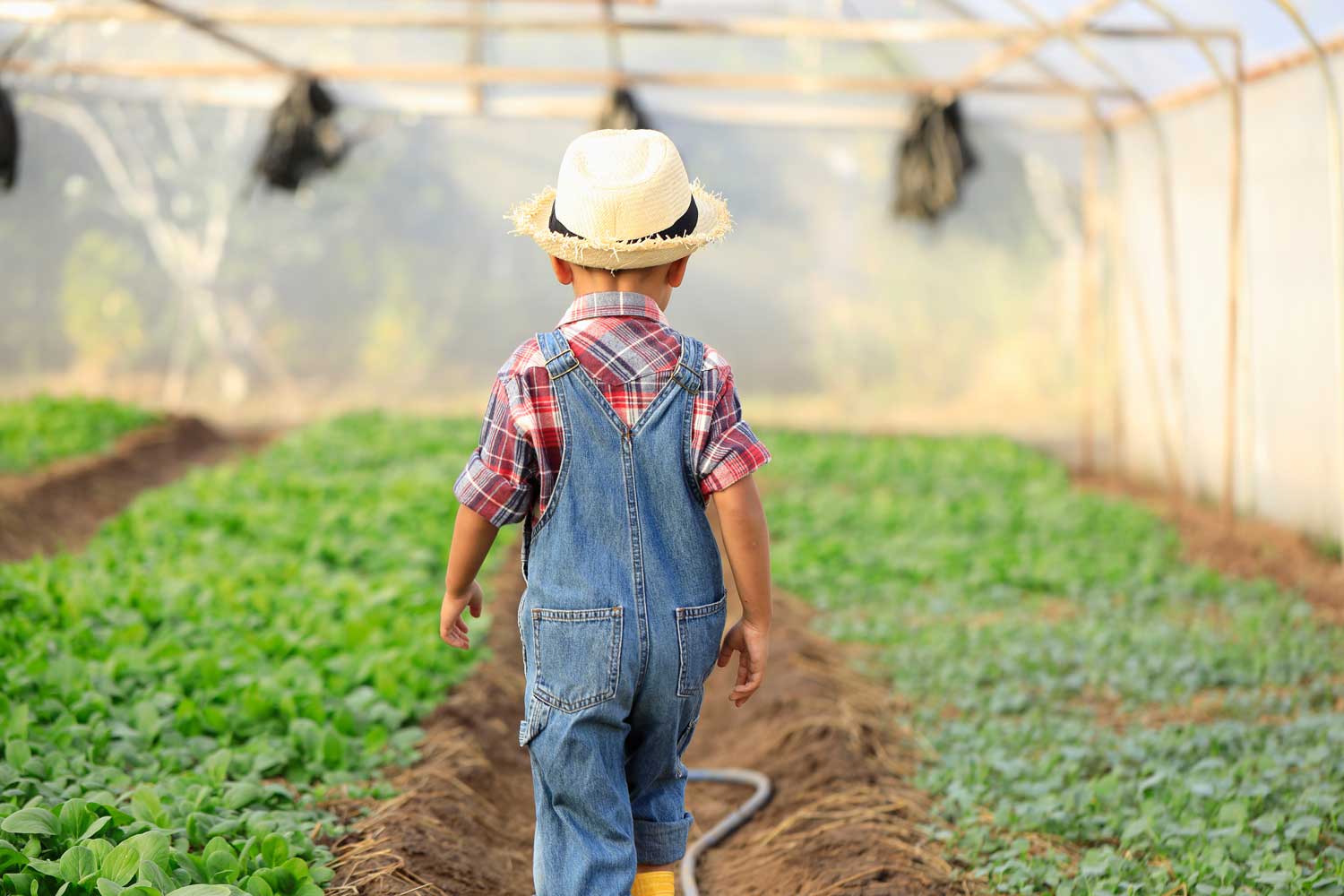Why You Should Put Your Hands in The Dirt for Your Health
We all know that being outside is good for our physical and mental health in a multitude of ways, but did you know that dirt specifically has microbes that act as antidepressants? Billions of these little microbes live in your gut and on your skin. They play important roles in everything from regulating your mood to chronic diseases like diabetes and arthritis.
One of the ways we shape our microbiome is through exposure to the microbes in soil. Just some good old-fashioned time in the dirt may help you reap a plethora of impressive health benefits. The vitamin D we absorb from the sun while we dig in the dirt also plays a critical role in a healthy immune system, as does the gentle exercise and stress relief we experience when we garden. The British National Health Service (NHS) has even recommended that doctors prescribe gardening for its health-boosting effects!
So, if you want to know more about the wonderful health benefits of getting dirty, keep on reading!
Here’s Why Dirt Is So Healthy For You
Research over the last decade or so has shown that the microbes and bacteria in dirt can help boost your immune system and make you healthier and even happier. Unfortunately, most people today have become germaphobic using germ-killing wipes, hand sanitizers, and even strong chemicals to clean their homes. But, it turns out that dirt has an important immune strengthening purpose. Getting dirty may also make you happier and less stressed. Some studies suggest this effect originates in the gut, where beneficial soil microbes help regulate neurotransmitters that affect our emotional state.
A study published in the June 2012 issue of The Journal of Allergy and Clinical Immunology shows that Amish children who live on farms have about a 50% reduction in asthma, allergies, and gut-related disorders compared to children who grow up in more sterile environments.
The Farm Effect is the corollary — or positive proof — of the “Hygiene Hypothesis,” which states that a lack of early childhood exposure to infectious agents, microorganisms and parasites increases our susceptibility to allergic diseases by suppressing the natural development of our immune systems. (The Hygiene Hypothesis has also been called the “Biome Depletion Theory” and the “Lost Friends Theory.”)
Researchers at the University of Colorado Boulder have observed that heat-killed Mycobacterium vaccae (a benign soil dwelling bacteria) has immune-modulating and mood altering properties when it is injected into experimental mice. While the studies have yet to be replicated in humans, the thinking is that M. vaccae, along with a host of other microbes that live in soil and the natural environment, co-evolved with us and have the power to communicate with our own cells.
In a 2007 paper published in the journal Neuroscience, Christopher Lowry, a neuroscientist at the University of Bristol and his team wrote that the bacteria activated groups of neurons in the mouse brains responsible for producing serotonin—a neurotransmitter that, when impaired, can cause depression. Even more intriguing, the neurons that lit up were also known to be related to immune response, suggesting an intimate connection between the immune system and emotional health.
Numerous studies have also pointed to the decreased incidence of allergies and asthma when children are exposed to a variety of microbes. Often called the ‘farm effect’, researchers agree that in our overly-sterilized modern world, developing immune systems don’t encounter enough bugs to learn how to regulate properly.
Others have found evidence that there’s an exchange of DNA between soil microbes and those in our gut that positively affects immune function. “A global loss of biodiversity is to blame for the dysregulation of the human immune system and thus the increase in allergic and inflammatory diseases observed in developed nations around the world,” according to a group of ecologists at the University of Helsinki.
Another interesting bit of research suggests that the brain actually releases dopamine when we harvest food from the garden! This is known as “Harvest High.” Harvest High most likely first occurred years ago when hunting and gathering was a means of survival. When our ancestors found food, a flush of dopamine would release in the reward center of their brains.
This means our primitive brains were originally wired to crave healthy foods from the soil. That same dopamine high – which is similar to the high some people get from drugs or shopping (“retail therapy,”) can actually be healthy for you and cheaper on your wallet when you trigger it simply by seeing or smelling fresh produce.
Others have pointed to the stress-relieving properties of gardening, which may come from simply being in nature, from the gentle exercise gardening encourages, or from the satisfaction we derive from nurturing plants and growing our own food.
Time spent in nature has repeatedly been shown to improve health and mood.
In one study, hospital patients with views of trees healed more quickly and reported less pain than patients with views of brick walls. Whatever the cause, the cortisol-lowering effect of a stress-relieving dirt session is a healthy thing. Cortisol — produced when we’re under stress — has been linked to an array of undesirable health effects, from weight gain to poor sleep to decreased longevity. Finding ways to reduce cortisol is a smart move.
So if you’re feeling down or not feeling your healthiest, maybe some time outside in the dirt is just what you need!

p.s. Just in case you are looking for a specific food, supplement, or any other wellness need, reach out to us here at 916-253-9276 and we would be happy to help you find exactly what you are looking for.
We are deeply committed to sharing our knowledge of health and therefore have carefully chosen the products we offer in our store. You’ll find only the highest quality brands and a large selection to choose from so you’re sure to find exactly what you need.
If you can’t make it into the store, we’re always happy to deliver it to you because your health and happiness are our #1 priority!
We would love to get to know you better!
Drop a comment below and let us know more about you!


